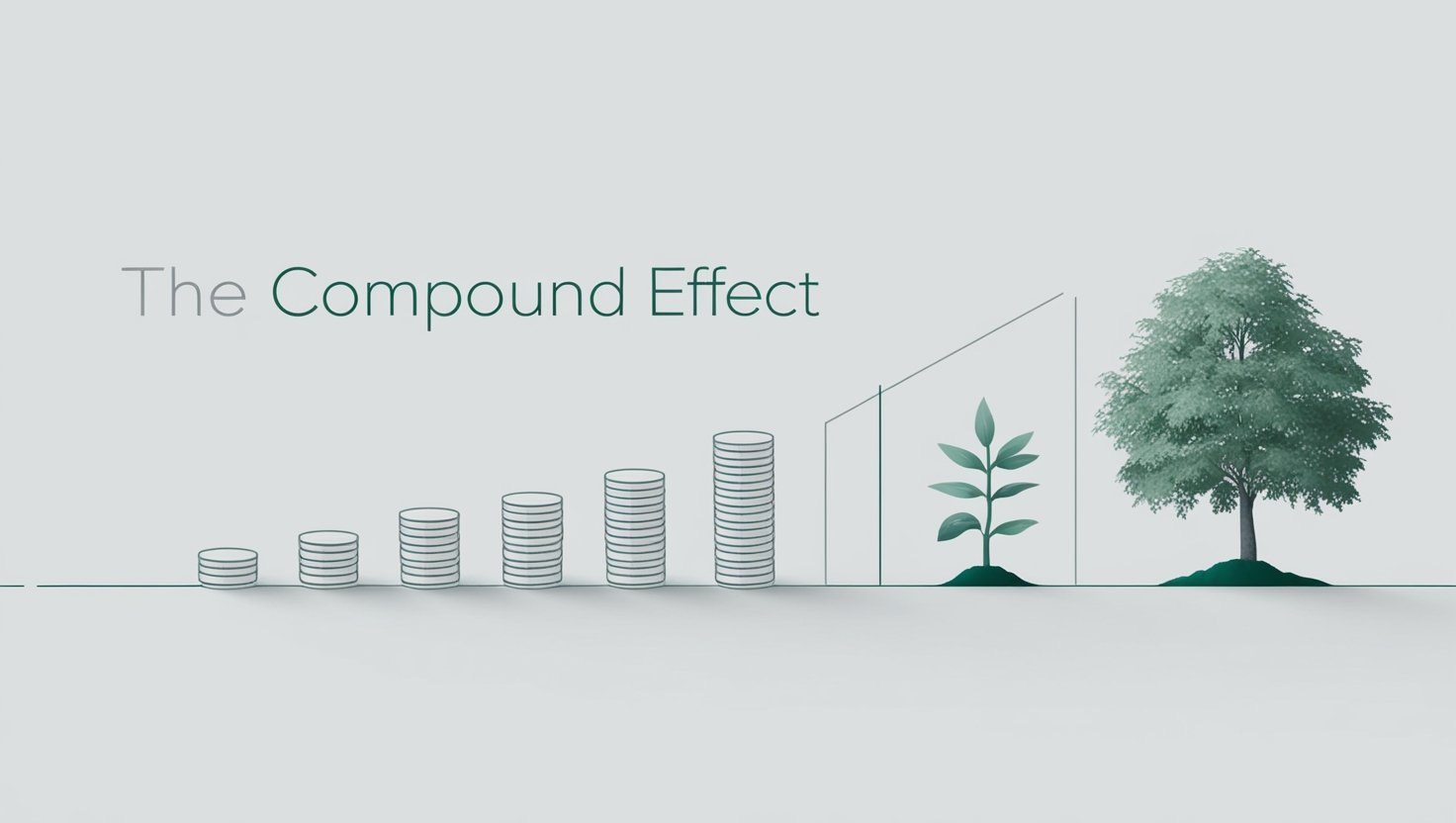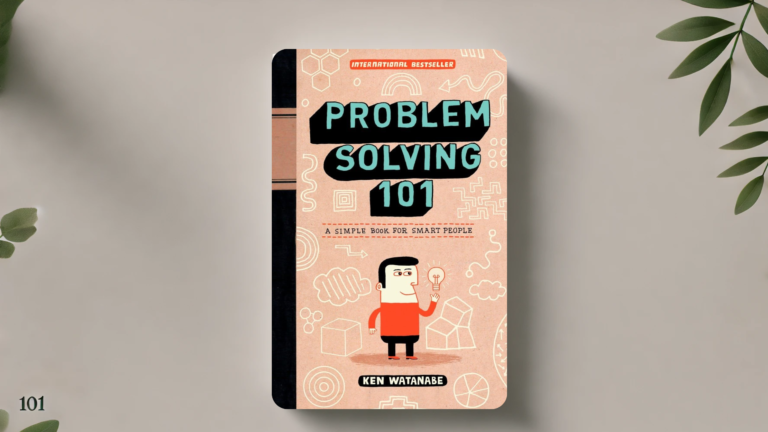Introduction
Albert Einstein, one of the greatest scientists of all time, famously said, “Compound interest is the eighth wonder of the world.” Darren Hardy, the publisher of SUCCESS Magazine, echoed this in his book The Compound Effect, which became a New York Times bestseller. Hardy’s book emphasizes how small, seemingly insignificant choices compound over time to shape our lives and bring massive results.
So, what is the root cause behind a person’s success or failure? Is it their upbringing, environment, or something else? According to Hardy, the root factor is the small choices we make every day. It’s the only thing we have full control over, and these choices determine all of our outcomes.
Table of Contents
The Compound Effect in Action
These small choices determine all our outcomes: whether you’ll be healthy your whole life or struggle with diseases, whether you’ll have a long and loving relationship or have to explain to your daughter why you divorced her mother.
But we often overlook these small choices. Let me give you two options right now: I’ll give you $1 today, and it will double every day for the next month, or I’ll give you $1 million dollars right now. Which one would you choose?
Most people, probably almost everyone, would choose the second option — the $1 million dollars. Alright, so I’ll keep the first option for myself. Now let’s see what happens after one month.
After 5 days, I have $16, and you have $1 million. After 10 days, I have $512, and you still have $1 million. After 20 days, I have $524,288, and you still have $1 million. You must be enjoying your money!
But after 31 days, you still have $1 million, and I now have $1,073,741,824 — more than 1 billion dollars, over 1,000 times more than you.
Now it’s clear why Einstein called compound interest the 8th wonder of the world. Success often follows the same pattern.
Three Friends, Three Different Outcomes: A Real-Life Example
Let’s take the example of three friends — Ryan, Victor, and James. They all grew up in similar environments, have roughly the same income, and are all married. However, their small, everyday choices lead to very different outcomes:
- Ryan: Continues living his life without making any changes, occasionally complaining about things but feeling content.
- Victor: Starts making small, positive changes, such as:
- Reading 10 pages of a good book every night.
- Reducing his daily calories by 125.
- Walking 1 mile a day.
- Drinking 2 liters of water daily.
- Taking his wife out for dinner once a week.
- James: Makes small, negative choices, such as:
- Eating junk food daily.
- Skipping the gym 3-4 days a week.
- Drinking soda every day.
- Reducing communication with his wife.
The Results After 31 Months
After 31 months, the differences between these three friends are significant:
- Ryan continues to feel unfulfilled, with no noticeable changes in his life.
- James has gained 30 pounds, developed health issues, and his relationship with his wife deteriorated to the point of divorce. His financial situation also worsened due to a lack of communication and focus on his business.
- Victor, on the other hand, is thriving:
- He lost 30 pounds by reducing calories and walking daily.
- He read 50 books, significantly increasing his knowledge and wisdom.
- His business grew because he consistently networked and maintained good relationships.
- His marriage flourished through regular date nights with his wife.
This example shows how small, positive actions compound over time to create incredible results, while small, negative actions can lead to disastrous outcomes.
Why Do We Fail to Follow This Formula?
Even though the process of success seems simple, many people struggle to follow it. Darren Hardy outlines four traps that often cause people to fail or lose consistency.
1. Starting Results Are Invisible
If you ate a burger today and gained 30 pounds overnight, you’d probably avoid eating burgers again. However, results don’t appear immediately. It’s the small, unnoticed changes over time that lead to big consequences, whether good or bad.
Solution: Always remember, “Every choice you make ignites a butterfly effect.” Be mindful of every decision, as each one compounds over time.
2. The Deceptiveness of Small Deviations
A plane flying to Los Angeles that goes off course by even 1 degree could end up hundreds of miles away from its destination. Similarly, if you make small deviations from your goals, you’ll end up far from where you intended to be after years of compounded missteps.
Solution: Use a daily checklist or routine to stay on track. If you stray, this will help guide you back.
3. Immediate Gratification
You have two choices after dinner:
- Drink a glass of water.
- Eat a slice of chocolate cake.
Choosing the water may not feel rewarding in the moment, but the long-term benefits far outweigh the short-term pleasure of the cake. This is the paradox of success: “Short-term pleasures create long-term pains, and short-term pains create long-term pleasures.”
Solution: Choose the pain of discipline over the pain of regret. Discipline may feel uncomfortable now, but regret is far heavier and lasts much longer.
4. What Is Easy to Do Is Also Easy Not to Do
Small tasks like drinking two bottles of water or walking 1 mile are simple, but they’re also easy to neglect. The key to success lies in consistency, even when it feels mundane or difficult.
Solution: Find your “why”—a powerful reason to keep you motivated and disciplined. As Muhammad Ali once said, “I hated every minute of training, but I loved being a world champion.” Your “why” will keep you going when motivation wanes.
Conclusion
The compound effect is always in motion, whether you recognize it or not. It can either work for you or against you. By consistently making small, positive choices, you can achieve incredible success over time. On the other hand, neglecting small, negative actions can lead to severe consequences.
Remember: You either earn the benefits of the compound effect or you pay the price for ignoring it.
Related notes: 40/70 Rules of Decision Making




